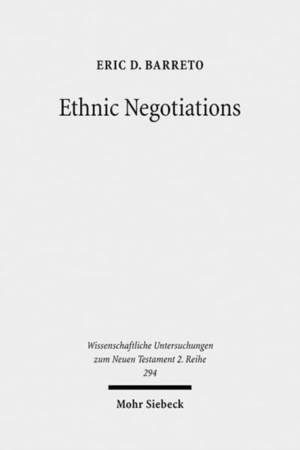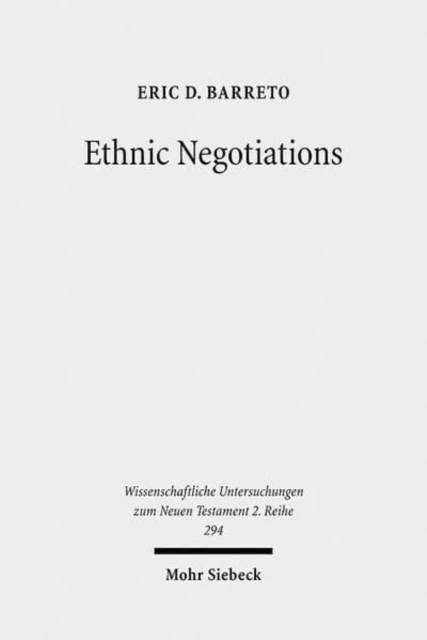
- Afhalen na 1 uur in een winkel met voorraad
- Gratis thuislevering in België vanaf € 30
- Ruim aanbod met 7 miljoen producten
- Afhalen na 1 uur in een winkel met voorraad
- Gratis thuislevering in België vanaf € 30
- Ruim aanbod met 7 miljoen producten
Zoeken
Ethnic Negotiations
The Function of Race and Ethnicity in Acts 16
Eric D Barreto
Paperback | Engels | Wissenschaftliche Untersuchungen zum Neuen Testament 2. Reihe | WUNT II | nr. 294
€ 72,95
+ 145 punten
Omschrijving
Biblical scholarship has recently begun to explore the complex notions of race and ethnicity. Focusing on Acts 16, Eric D. Barreto inquires as to the function of ethnic identities in Luke's composition. The current study of Acts curtails a full appreciation of Luke's expansive theological vision by either neglecting racial and ethnic categories or construing them as relatively static designations. Instead, race and ethnicity were theologically vital yet flexible notions in Acts. Luke does not imagine the creation of a new ethnicity of Christians; instead, he projects an interstitial ethnic space between the competing and overlapping ethnic claims of Jews, Romans, Greeks, and the other peoples that populate the pages of Acts. Luke does not erase ethnic difference but employs the flexible bounds of ethnicity in order to illustrate the wide reach of the early church movement.
Specificaties
Betrokkenen
- Auteur(s):
- Uitgeverij:
Inhoud
- Aantal bladzijden:
- 221
- Taal:
- Engels
- Reeks:
- Reeksnummer:
- nr. 294
Eigenschappen
- Productcode (EAN):
- 9783161506093
- Verschijningsdatum:
- 31/12/2010
- Uitvoering:
- Paperback
- Formaat:
- Trade paperback (VS)
- Afmetingen:
- 158 mm x 234 mm
- Gewicht:
- 430 g

Alleen bij Standaard Boekhandel
+ 145 punten op je klantenkaart van Standaard Boekhandel
Beoordelingen
We publiceren alleen reviews die voldoen aan de voorwaarden voor reviews. Bekijk onze voorwaarden voor reviews.











